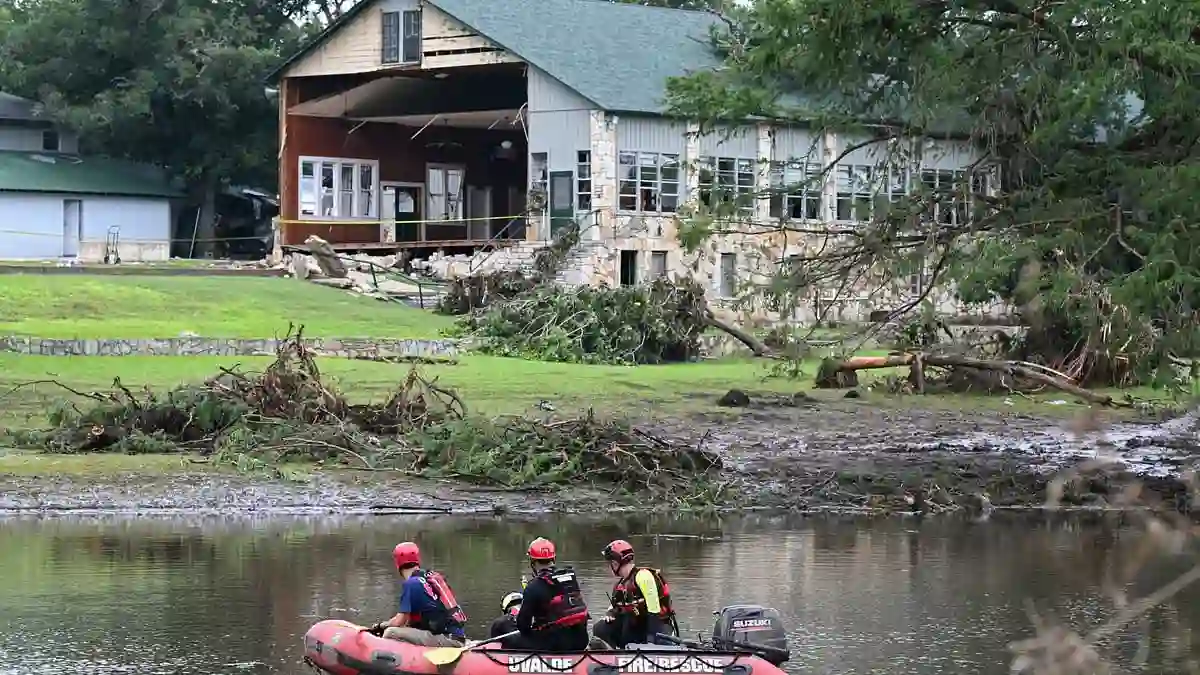What was supposed to be a joyful, memory-making summer at a Christian girls’ camp turned into a devastating tragedy over the July 4th weekend.
Camp Mystic in Texas—where hundreds of girls gather each year to sing songs, make friendships, and grow in faith—was suddenly swept into chaos when the Guadalupe River rose unexpectedly, flooding the camp and claiming dozens of lives.
Camp Mystic Hit by Catastrophic Floodwaters
In the early hours of Independence Day, the Guadalupe River surged up to 30 feet above normal.
The all-girls summer camp, nestled near the river and Cypress Lake, was overwhelmed.
By the time the waters receded, 27 campers and counselors had lost their lives.
Even days later, as of Tuesday night, five girls and one counselor were still missing.
Inspectors Had Just Approved Emergency Plans
What makes this tragedy even more heartbreaking is the timing.
Just two days before the flood, state health officials gave Camp Mystic a clean bill of health.
Records released by the Texas Department of State Health Services show the camp was found to be fully compliant with all emergency planning requirements.
They were officially signed off on July 2—the same day Texas’ emergency management division activated statewide flood response protocols.
At the time of the flood, more than 550 campers and 100 staff members were present across Camp Mystic’s two locations.
Counselors Say They Had No Idea What to Do
Despite those official approvals, several counselors have now spoken out, saying they felt completely unprepared when the flood hit.
Some even said they didn’t know an evacuation plan existed.
One staff member told CNN that only a handful of people, likely camp leadership, had walkie-talkies to communicate during emergencies.
The rest of the counselors? Left in the dark.
No Phones, No Alerts, No Warning
One of the counselors, Caroline Cutrona, explained how Camp Mystic has a strict no-phone policy for both campers and staff.
Unless they were on break, staff had to turn in their phones, meaning no one received severe weather alerts when they were sent out.
“I didn’t hear anything—no signal, no warning,” Caroline said.
“We usually wake up to reveille over the loudspeaker. But at around 4 a.m., the power went out.
That’s when I knew… there would be no announcements, no way to warn anyone.”
Power Failure Shut Down Camp’s Only Emergency System
Camp Mystic’s loudspeaker system, their only real tool for mass communication, went silent when the power cut out early in the morning.
Without it, there was no way to sound an alarm, gather the girls, or issue an evacuation order.
It left many counselors in a state of confusion, with no clear instructions as the water kept rising.
Camp Owner Dies Trying to Save Campers
Adding to the sorrow, Camp Mystic’s longtime owner, Richard ‘Dick’ Eastland, age 70, tragically lost his life while attempting to rescue the girls.
Known as a father figure to many, Eastland was trying to help the younger campers when he was swept away by the water.
Youngest Campers Trapped in Flooded Cabins
A haunting photo shared earlier this week shows the young faces of 13 girls and two counselors who were lost in the flood.
They had been staying in the Bubble Inn cabin, which—along with the Twins cabin—housed the youngest girls at the camp, aged 8 to 10.
Both cabins sat less than 500 feet from the river and were hit from two sides—by the Guadalupe River and a nearby creek—leaving very little time or space for escape.
A System That Looked Ready on Paper but Failed in Practice
Although the camp technically passed its inspection and had an emergency plan on file, what unfolded on July 4 showed a massive gap between policy and reality.
The lack of communication tools, absence of alert systems, and limited evacuation awareness among staff may have contributed to the horrifying outcome.
Still Grieving, Still Searching
As the community continues to mourn, search efforts for the missing continue.
Families are demanding answers—how could a camp that was just inspected days earlier be so unprepared? And how can something like this be prevented in the future?
